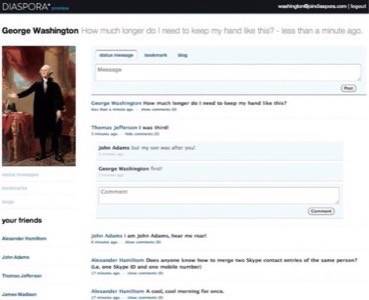The team behind Diaspora, the open source alternative to Facebook that got a lot of high-profile press during Facebook’s privacy controversies earlier this year, announced today that it is on track to launch the first open source version of its social network on the 15th of September. Just as soon as two of its members get back from the Burning Man festival.

The team says it has pushed back technical work like plug-ins and APIs and is instead focused on User Interface and a key feature that Facebook has neglected: contextual sharing. “That means an intuitive way for users to decide, and not notice deciding, what content goes to their coworkers and what goes to their drinking buddies. We know that’s a hard UI problem and we take it seriously.”
The way that Facebook has failed to embrace that kind of contextual sharing and has instead pushed for universal openness of almost all published content by default is one of the biggest things the world’s leading social network has been criticized for. It could be a serious vulnerability in the social networking market.

We first wrote about the Diaspora project in early May, when a team of NYU computer science students put their ambitious plan up on community fundraising site Kickstarter. A week later, a spate of high-profile social web celebrities, most prominently podcaster Leo Laporte, quit Facebook and rallied financial support for Diaspora as an alternative.
The team had set a goal of raising $10,000, but tidal waves of attention resulted in donations totaling more than $200,000. Even Facebook founder Mark Zuckerburg gave them a donation. “I see a little of myself in them,” he told Wired.
Short on code but long on benevolent ambition, the team set out to build what it calls a “privacy aware, personally controlled, do-it-all, open source social network.” Diaspora moved to San Francisco and began working with Pivotal Labs, the company that helped Twitter get over its initial scaling challenges. The team decided to build its social network on top of the OStatus open source code base, the development of which has been lead by the widely-loved creators of Status.net, the open source microblogging enterprise alternative to Twitter.
Now flush with financial and community support, Diaspora has been issuing infrequent but optimistic updates about its progress. It appears that an interoperable implementation of the customizable social network will be ready to run on your servers by the middle of next month.
















